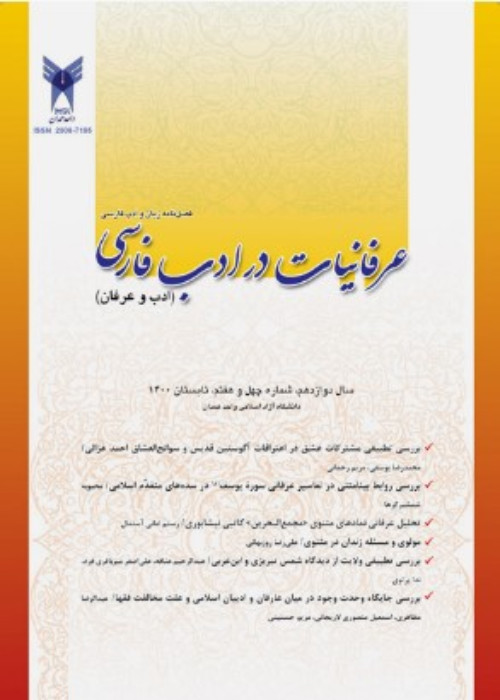Determinism and Authority in Zoroastrian mysticism and its commonalities with Rumi's mysticism
Authority and determinism in the culture of ancient Iran has undergone many ups and downs and has never followed a soft and coherent path from the very beginning of its existence. This is found in the words of the early Aryans of Iran left in the religious book of Mazdisnan (Aresta) where Authority and determinism seem inseparable in the daily affairs of Iranians. This idea is further shown by the formation of Aryan governments and the beginning of inscriptions in Iran ( especially inscriptions from the Acheamenid dynasty). This process has followed an uneven path until the Sassanid era where Zarwanism came to believe in the idea of determinism and in it was in this period when the thought derived from the Zarwani religion combined with the mercenary thought and Culture which considers everything, even the benevolence of Ahuramazda and the evil of the Devil, as related to the will of these two. Following this change, a middle position of belief in predestination and Zarwanist belief came to dominate the thoughts of Iranian people. In Rumi's view, determinism and authority are related to the degrees of conduct and Complementary authorities of seekers. In other words, at the beginning of his journey, the seeker feels free until he reaches the position of annihilation in the sight of God and being with Him-- which is the last position of the seeker – but when he reaches that position and for him, the apprehensions of existence become vain and worthless, he no longer has any authority, but becomes a drop that joins the sea where his existence and his movement and peace and every action that is issued from him are subject to the sea. This research studies the two elements of predestination and free will in Zoroastrian texts, as well as their commonalities with Rumis' though. It is concluded that like Rumi, Zoroaster believes that every human being has free will to choose between good and bad. The main point of these two thinkers is moral while they believe in a sort of predestination which prevails in all religions and among all ethnicities and is the belief in God's will that lies along the will of man.
- حق عضویت دریافتی صرف حمایت از نشریات عضو و نگهداری، تکمیل و توسعه مگیران میشود.
- پرداخت حق اشتراک و دانلود مقالات اجازه بازنشر آن در سایر رسانههای چاپی و دیجیتال را به کاربر نمیدهد.


